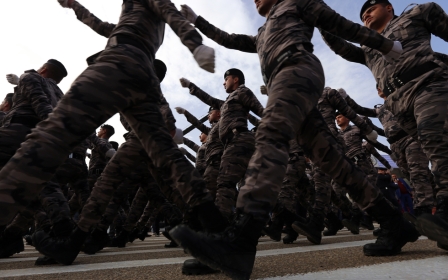Almost 60 cases against UK soldiers in Iraq dropped

Almost 60 investigations into British soldiers accused of unlawful actions during the war in Iraq have been dropped, defence ministry officials said on Sunday.
The Iraq Historic Allegations Team (IHAT), set up to investigate allegations by Iraqi civilians of abuse by British soldiers between the US-led invasion in 2003 and 2009 when British combat troops left, has decided not to proceed in 57 cases.
The military's prosecuting authority stopped one additional case, the defence ministry said.
It follows an announcement by Conservative Prime Minister David Cameron of proposals to stop returned soldiers “being hounded by lawyers over claims that are totally without foundation”.
Cameron on Friday accused lawyers of creating “an industry trying to profit from spurious claims lodged against our brave servicemen and women who fought in Iraq”.
However Nicholas Mercer, the army's former chief legal advisor in Iraq, said 326 cases had already been settled “on merit” at a cost of $28.5mn, suggesting widespread problems.
“One of the allegations is that there was systemic abuse of Iraqi prisoners after they were captured,” Mercer said in a televised interview.
“Clearly this isn't just one or two bad apples, as they have been characterised, this is on a fairly large and substantial scale,” he said.
He accused Cameron's government of “hijacking this to have a go at lawyers who are bringing cases against them”.
Currently, IHAT lists 1,329 cases under investigation, including allegations of ill treatment while in detention, unlawful killings and accusations of assault.
Proposals to curb lawsuits deemed “spurious” include requiring claimants to have lived in the UK for 12 months and curtailing so-called “no win, no fee” arrangements by which lawyers are only paid if the lawsuit is successful.
New MEE newsletter: Jerusalem Dispatch
Sign up to get the latest insights and analysis on Israel-Palestine, alongside Turkey Unpacked and other MEE newsletters
Middle East Eye delivers independent and unrivalled coverage and analysis of the Middle East, North Africa and beyond. To learn more about republishing this content and the associated fees, please fill out this form. More about MEE can be found here.




